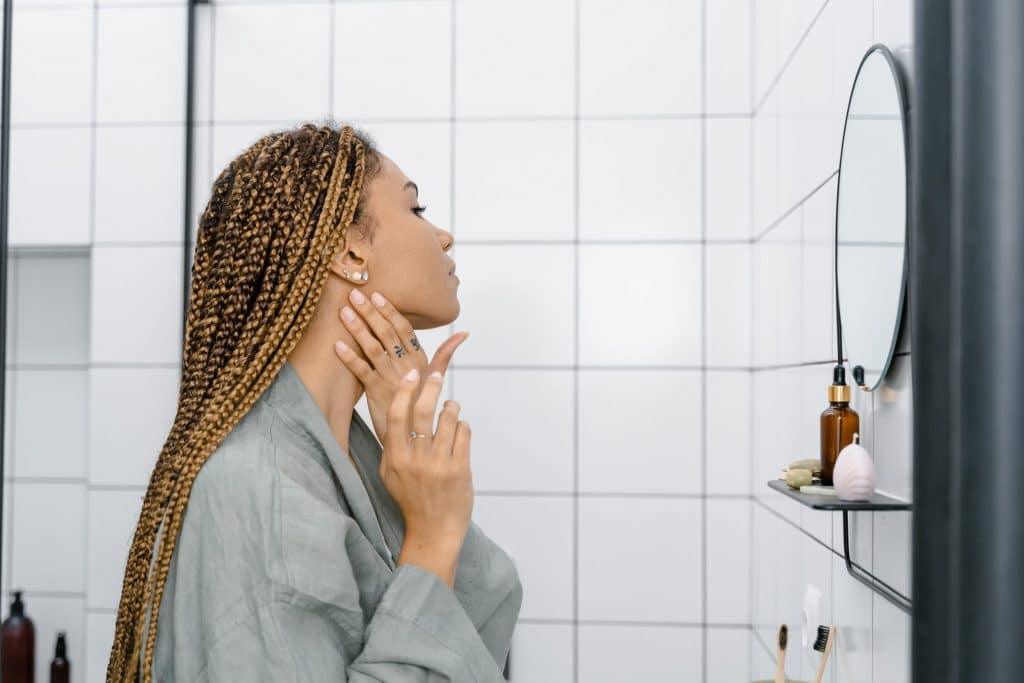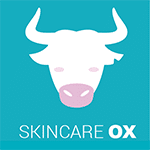How to Choose the Best Clean Skin Care Line for Your Needs

Photo by Tima Miroshnichenko from Pexels
By Dr. Mira, founder and owner of Rosemira Organics
Imagine eating a diet of foods containing preservatives, stabilizers, artificial sweeteners, and filler ingredients like high-fructose corn syrup. You can miss out on nutrients and antioxidants needed to maintain optimal health and can damage your gut by killing the good bacteria that help absorb nutrients when you do decide to eat a vegetable.
It’s the same with your skin.
If you’re using conventional beauty products full of preservatives, fragrances, and stabilizers, you can damage your skin’s microflora, which can impair your skin function and have a negative impact on overall skin quality and appearance.
At Rosemira Organics, we started formulating clean skin care 45 years ago before it was a concept. I was a cook, so making something for my skin that is edible was intuitive. But I didn’t know anything about gut flora or about the skin microbiome. I don’t believe the word organic was even used back then.
Over the past decades, a lot has changed. There are many companies and individuals that have emerged alongside research to support the idea of clean beauty, as being more effective than the conventional beauty we were all accustomed to until recent years and better for the environment.
What is ‘clean’ skin care?
To me, it means using organic toxin-free ingredients that are rich in the nutrients vital to nourish your skin for effective results. Buying local is also important. The longer the shelf life and the farther it travels, the more additives and preservatives you’ll find in the ingredients. The long-term health implications of these added compounds can be more than skin deep.
Some brands, like Rosemira, make products weekly in small batches. Yet, even as a small company, keeping our commitment to weekly freshly made products is challenging. But as I wouldn’t want to eat a meal cooked last week if I don’t have to, I don’t want my skin to have a product that requires the addition of preservatives and additives because it is required to sit on a shelf for a long period of time.
So what should I avoid in my skin care?
Many of the 82,000 ingredients used in personal care products contain industrial chemicals that are carcinogens, pesticides, and hormone disruptors. Your favorite skin care products could contain anything from plasticizers (chemicals used to keep concrete soft) to degreasers (used to get the grime off auto parts) to surfactants (used in paint and inks). Although these ingredients are considered safe by the FDA for acute exposure because of the low quantities used in beauty products, there is a lack of studies about chronic exposure. If we know these chemicals are dangerous at high exposures, we can’t assume they’re safe just because levels are low when used over a prolonged period. We need data to prove that, but we don’t have it just yet.
The good news is that some beauty brands are leading the change. This includes enlightened formulators crafting effective products made from clean and safe ingredients for any exposure. Look to overhaul your bathroom cabinet.
There are many sources where you can see a list of ingredients that should not be used in skin care, most commonly known as the ‘dirty dozen’. Make sure the line you choose does not use any of these ingredients. If it looks like a clean line, but there is an ingredient you aren’t certain about, reach out to the brand. If you receive thoughtful answers to your questions and your concerns are addressed, this is a line you want to establish a relationship with.
What to look for when choosing a clean skin care brand
If choosing a new product line, look at the brand’s philosophy and what products they carry. Consider these questions:
- Is there a complete list of ingredients for every product visible on their website?
- How many of the products contain preservatives and at what concentration?
- Do they advertise active and inactive ingredients in their list of ingredients?
That last question pertains to including ingredients that are not adding any value to your skin. Why should there be any inactive ingredients in any formula? Sadly, this is typically due to cost cutting and preservation.
Within the clean beauty industry, different formulators have different ideas about what constitutes a clean product and what ingredients should or should not be included. Some believe that products should be made without water, floral hydrosols or any extract that is water-based. I beg to differ. Water in its myriad forms in a formula is critical to proper hydration and moisturization. At Rosemira, we make many essential Serums and Facial oils. While they are wonderful and provide important nutrients, as they are often formulated to address and correct specific skin issues, such as rosacea, acne, scarring, dark spots, and sun damage, they are not as hydrating or moisturizing as a cream.
Creams are more difficult to preserve, and making effective, stable creams is more complicated when using natural ingredients, but it is not something I would compromise in my beauty routine. In my personal experience at 63 years old and after 45 years of diligently using skin care products, moisturizing creams have been the most important and impactful in maintaining the youthful glow of my skin.
Look for a relationship with the brand
Using a skin care line is a relationship. Too many of us look for the next best thing. Like finding your doctor, trainer, mentor, find the brand you resonate with. Try to avoid jumping around looking for the next best product.
At Rosemira, making skin care products and sharing them with the world is a calling. I started 45 years ago and I’m still doing it. I have a more extensive line of products and have included new ingredients as I discover and research.
Like a nutritional program, a skin care routine needs to be built with your needs and concerns in mind. Our Rosemira team enjoys helping people choose the right products for their skin. The products your skin needs can change with time and your life circumstances.

